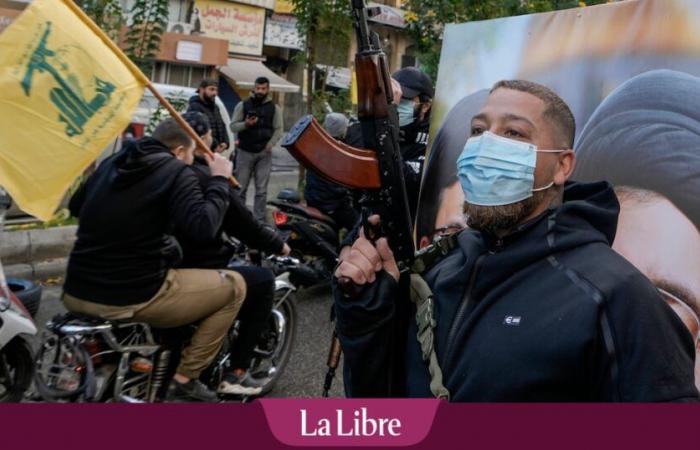
Panic and monster traffic jams
Beirut was the scene of scenes of panic and monster traffic jams. The population of neighborhoods like Hamra and Ras Beirut, hitherto spared from Israeli raids, are fleeing the announced strikes.
Despite everything, relief prevails among the population, exhausted by more than a year of war and by these last two months of extreme violence. The human toll is very heavy: nearly 860,000 people displaced, according to the World Bank, 3,823 killed including more than 200 children and almost 16,000 injured.
As the last Israeli drones made their last stand at dawn, gunfire rang out in the city. Especially in Shiite neighborhoods and towns. Israeli raids have in fact continued to target them seeking to lessen the support that this community gives to Hezbollah, which had opened a “support front” for Palestinian Hamas on the Lebanese-Israeli border the day after the massacres of 7 October 2023.
Implementing United Nations Resolution 1701
The text of the ceasefire, carried by the United States, has thirteen points. It aims to enable the concrete implementation of United Nations Resolution 1701, adopted in the aftermath of the 2006 war. Its terms have never been respected until now: Hezbollah quickly re-enters the Lebanese region in the north of the Litani River, from which he was supposed to stay away.
“It seems that in Lebanon we have reached a point where the two belligerents have decided that the cost of continuing the war now outweighs the expected benefits of continuing the war: we are reaching a ceasefire. fire when neither Israel nor Hezbollah sees a better alternative“, commented Greg Carlstrom, the correspondent of The Economist, always on X.
The ceasefire provides in detail for the Israeli withdrawal, whose army was advancing into Lebanese territory, within 60 days. It must therefore leave the border area located south of the Litani River. This delay should at the same time allow the fighters of the Shiite party, an ally of Iran, to withdraw north of the river to give way to the Lebanese army. This will have to ensure the dismantling of all positions and all of the infrastructure that Hezbollah may have retained there.
A ceasefire which could only be a respite: “Any breach will lead to a powerful reaction”
A fragile agreement
If the Lebanese army seems to have been kept informed of the role it must now play, everyone in Lebanon is aware of the complexity of a process which could still collapse at any moment.
Benjamin Netanyahu also assured that the Jewish state reserved the right to attack Lebanon “if Hezbollah breaks the agreement“. A point that Tel Aviv would have liked to see formally included in the text validated by the parties, which Lebanon refused in the name of its sovereignty. Israel has also failed to impose a “buffer zone” as it has. would have liked to move to the Lebanese border to put the Galilee out of range of Hezbollah missile fire.
Despite losses, the Shiite movement does not give up
The composition of the future committee, responsible for supervising the implementation of the agreement, remains unknown at this stage. The text stipulates that its members will receive approval from both parties. According to the international press, Israel would have contested the presence of France, while Lebanon would have refused that of Germany and the United Kingdom, considered too favorable to Israeli interests.
A first political test in Lebanon
However, beyond the difficulties and dangers of implementing the agreement, the Lebanese are aware of the political challenges that lie ahead with their possible share of tensions. From this point of view, the first test will be the election of a President of the Republic, a position vacant since the departure of Michel Aoun two years ago. This election should above all make it possible to establish the balance of power between the two camps which are still opposed to Lebanon, the “March 14 Alliance”, pro-Western, and the “March 8 Alliance”, favorable for its part to Iran and the “axis of Resistance”. S
While there is little doubt that Hezbollah emerges weakened from its conflict with Israel, the head of the parliamentary group of the Shiite party, Mohammad Raad, has already reaffirmed that the “résistance” remained one of the pillars of the defense of Lebanon’s sovereignty.





